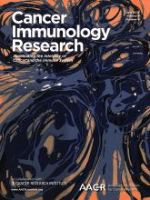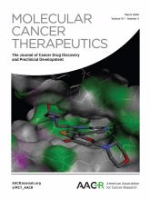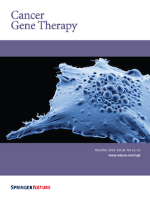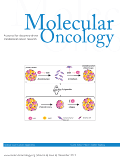
Biomarker Research
Scope & Guideline
Advancing biomarker discovery for a healthier tomorrow.
Introduction
Aims and Scopes
- Cancer Biomarkers Discovery and Validation:
Focuses on identifying novel biomarkers that can aid in cancer detection, prognosis, and treatment response, employing techniques such as genomic sequencing, proteomics, and metabolomics. - Immunotherapy and Immune Microenvironment:
Examines the role of biomarkers in immunotherapy, including the characterization of tumor-infiltrating lymphocytes, immune checkpoint molecules, and the tumor microenvironment's impact on therapeutic outcomes. - Multi-Omics Approaches:
Utilizes integrated multi-omics strategies (genomics, transcriptomics, proteomics, and metabolomics) to provide comprehensive insights into cancer biology and therapeutic responses. - Liquid Biopsy and Non-Invasive Diagnostics:
Focuses on the development of non-invasive techniques for cancer diagnosis and monitoring, including circulating tumor DNA (ctDNA), exosomes, and other extracellular vesicles as potential biomarkers. - Clinical Applications and Therapeutics:
Discusses the clinical implications of biomarkers in guiding treatment decisions, predicting patient outcomes, and personalizing therapy, particularly in the context of targeted therapies and immunotherapies.
Trending and Emerging
- Single-Cell and Spatial Transcriptomics:
A significant trend towards utilizing single-cell technologies and spatial transcriptomics to understand tumor heterogeneity and the immune microenvironment, providing insights into cellular interactions and therapeutic responses. - Metabolic Biomarkers and Metabolic Reprogramming:
Emerging focus on the role of metabolism in cancer progression and therapy resistance, with studies exploring metabolic reprogramming as a potential therapeutic target. - Artificial Intelligence and Machine Learning in Biomarker Discovery:
The integration of AI and machine learning techniques for analyzing large datasets to discover novel biomarkers and improve diagnostic accuracy is gaining traction. - Liquid Biopsy Advancements:
Increasing attention to liquid biopsies as a non-invasive method for early cancer detection and monitoring treatment responses, with a focus on ctDNA and exosomal biomarkers. - Targeted Therapy and Personalized Medicine:
A growing emphasis on the development of biomarkers that predict response to targeted therapies and immunotherapies, supporting the trend towards personalized cancer treatment.
Declining or Waning
- Traditional Biomarker Discovery Techniques:
The emphasis on classic methods for biomarker discovery, such as single-analyte assays, has decreased in favor of more sophisticated multi-omics and systems biology approaches that provide a more holistic view of cancer. - Non-Specific Biomarkers:
There is a waning interest in non-specific biomarkers that lack robust predictive or prognostic value, as the field moves towards more targeted and precise biomarker applications. - Basic Mechanistic Studies:
Research focused solely on basic mechanistic insights without translational applications is becoming less common, as the journal increasingly prioritizes studies that link basic science to clinical outcomes.
Similar Journals

Cancer Immunology Research
Illuminating the Path to Effective Cancer TherapiesCancer Immunology Research is a leading journal dedicated to the rapidly evolving field of cancer immunology, published by the American Association for Cancer Research. Established in 2013, this prestigious journal has quickly made a significant impact in its domain, achieving a 2023 Q1 ranking in both Cancer Research and Immunology. With an impressive Scopus rank of 24 out of 230 in cancer research and 28 out of 236 in immunology, it occupies a valuable position for researchers, professionals, and students engaged in cutting-edge cancer studies. Although it does not offer open access, the journal is committed to disseminating high-quality, peer-reviewed research that advances our understanding of the immune system’s role in cancer. The journal's objectives include fostering innovative studies, enhancing collaboration across disciplines, and promoting the translation of research findings into clinical applications, making it a vital resource for anyone invested in cancer therapy and immunological research.

MOLECULAR CANCER THERAPEUTICS
Transforming cancer care with cutting-edge research.MOLECULAR CANCER THERAPEUTICS, published by the American Association for Cancer Research, is a premier journal dedicated to advancing the field of cancer research and therapy since 2001. With a notable impact factor reflecting its high-quality content, this journal stands out in the Q1 category for both Cancer Research and Oncology as of 2023. Researchers, clinicians, and students interested in innovative treatment strategies and molecular mechanisms can find valuable insights within its pages, bolstered by a rigorous peer-review process and a global perspective on cancer therapeutic developments. Although the journal operates under a subscription model, it provides comprehensive access to cutting-edge studies and reviews that drive forward the understanding of cancer biology and treatment modalities. The journal's impressive Scopus rankings further validate its influence within both oncology and the broader cancer research community, making it an indispensable resource for anyone committed to combating cancer through science.

Cancer Medicine
Connecting global minds for impactful cancer research.Cancer Medicine is a leading open access journal published by WILEY, focusing on innovative research and advancements in the fields of Cancer Research, Oncology, and Radiology, with an impressive impact evidenced by its 2023 Q2 ranking in Cancer Research and Q1 rankings in both Oncology and Radiology, Nuclear Medicine and Imaging. With an ISSN of 2045-7634, this journal has been committed to disseminating pivotal findings since its inception in 2012, serving as a vital platform for researchers, practitioners, and students alike. The journal proudly embodies the spirit of open access, ensuring that groundbreaking cancer research is accessible to a global audience. Located in the United Kingdom, it spans a wide array of topics, promising comprehensive insights into cancer therapies, molecular mechanisms, and imaging techniques, thereby significantly contributing to the enhancement of cancer care and treatment outcomes. Researchers interested in exploring the latest advancements in cancer medicine will find this journal an indispensable resource.

CELLULAR ONCOLOGY
Fostering Global Collaboration in Oncological ScienceCELLULAR ONCOLOGY is an esteemed open access journal published by SPRINGER since 2004, specializing in the dynamic field of oncological research. With its ISSN 2211-3428 and E-ISSN 2211-3436, this journal plays a pivotal role in disseminating cutting-edge findings and innovative methodologies that address cancer at the cellular level. The journal has consistently achieved high-impact recognition, currently holding a Q2 rating in Cancer Research and Q1 rankings in Medicine (miscellaneous), Molecular Medicine, and Oncology as of 2023. Furthermore, it ranks 56th in oncology medicine and 48th in cancer research according to Scopus, placing it firmly within the top echelons of its field. Published in the Netherlands, with an aim to connect scientists, clinicians, and practitioners worldwide, CELLULAR ONCOLOGY fosters a collaborative environment for researchers to share insights, enhance understanding, and advance treatments. The journal’s open access model ensures that ground-breaking research is freely available, facilitating greater visibility and impact within the scientific community and beyond.

CANCER GENE THERAPY
Exploring Breakthroughs in Cancer Gene InnovationsCancer Gene Therapy, published by SpringerNature, stands at the forefront of research in the fields of cancer research, molecular biology, and molecular medicine. With a robust impact factor reflecting its significant influence—ranking in the Q2 category for cancer research and Q1 for both molecular biology and molecular medicine—it serves as an essential resource for scholars and practitioners alike. Since its inception in 1994, the journal has dedicated itself to advancing the understanding and therapeutic application of genetic innovations in oncology. Notably, it holds distinguished Scopus ranks, placing it among the top tier journals in its categories, underscoring its importance to the scientific community. While open access options are not available, the compelling research published here offers invaluable insights into the latest advancements and strategies in cancer therapy. Engaging with *Cancer Gene Therapy* not only keeps professionals informed but also inspires future innovations in the quest for effective cancer treatments.

BIOMARKERS
Charting New Territories in Biomarker ScienceBIOMARKERS is a distinguished journal published by Taylor & Francis Ltd, focusing on the critical intersection of biochemistry, clinical biochemistry, and health-related toxicology. With a robust history of publication since 1996 and ongoing contributions through to 2024, the journal serves as a vital platform for researchers, professionals, and students keen on exploring innovative biomarker research that spans various domains within the life sciences. The journal is currently ranked in the Q3 quartile in key areas such as Biochemistry and Health, demonstrating its reputation in the scientific community. Although it operates under a subscription model, BIOMARKERS remains an essential resource for advancing knowledge on biomarkers in health and disease, reflecting the latest advancements and methodologies within the rapidly evolving landscape of biomedical research. Researchers looking to publish in this influential journal can expect a rigorous peer-review process aimed at ensuring the dissemination of high-quality scientific inquiry.

Molecular Oncology
Advancing the Frontiers of Cancer Research.Molecular Oncology, published by WILEY, is a premier open-access journal that has been at the forefront of cancer research since its inception in 2007. With an impressive impact factor reflective of its outstanding contribution to the field, it holds a prestigious position in the Q1 category across multiple disciplines, including Cancer Research, Genetics, and Molecular Medicine. This journal is essential for researchers and professionals seeking to publish high-quality findings in a rapidly evolving area of study, underscored by its significant Scopus rankings that place it within the top percentiles of Oncology and Molecular Biology. As an open-access journal since 2017, it ensures that vital research is readily available to a global audience, thereby facilitating collaboration and knowledge dissemination among academic and clinical communities. With its commitment to innovative and impactful research, Molecular Oncology continues to be a critical resource for advancing our understanding of cancer biology and treatment.

JCO Precision Oncology
Pioneering the Future of Cancer Care with PrecisionJCO Precision Oncology, published by Lippincott Williams & Wilkins, is a leading journal in the field of cancer research and oncology, recognized for its high-impact contributions and innovative approaches to precision medicine. Since its inception in 2017, this journal has consistently ranked in the Q1 category in both Cancer Research and Oncology for 2023, reflecting its esteemed position within the academic community. With a rigorous peer-review process and a focus on disseminating cutting-edge research, JCO Precision Oncology serves as a vital platform for researchers, clinicians, and healthcare professionals aiming to enhance the understanding and treatment of cancer through individualized therapies. The journal's comprehensive scope includes studies on genetic profiling, biomarker research, and novel therapeutic strategies, making it an essential resource for anyone involved in cancer care and research. Explore further and join a community committed to advancing precision oncology and improving patient outcomes.

Cancer Communications
Pioneering Discoveries in Cancer CommunicationsCancer Communications, published by WILEY, is a leading open-access journal that has positioned itself at the forefront of cancer research and oncology since its inception in 2017. With an impressive HIndex reflective of its scholarly impact and recognized in the Q1 category for both Cancer Research and Oncology as of 2023, this journal consistently ranks in the top echelons of its field, specifically at Rank #16/404 and Rank #13/230 in their respective categories on Scopus. Cancer Communications aims to disseminate cutting-edge research findings, innovative methodologies, and significant advancements in cancer treatments, thereby fostering a deeper understanding of oncology among researchers, healthcare professionals, and students. The journal operates under an Open Access model since 2018, ensuring that vital research is accessible to a global audience, thus enhancing collaboration and knowledge sharing necessary to tackle one of the most pressing health challenges of our time. Located in Hoboken, NJ, United States, and with a strong commitment to scientific excellence, Cancer Communications remains an essential resource for anyone engaged in the fight against cancer.

Cancer Biomarkers
Fostering Collaboration in Cancer Biomarker Innovation.Cancer Biomarkers is a leading journal in the field of cancer research, aimed at the exploration and identification of novel biomarkers for cancer detection, prognosis, and therapy. Published by IOS PRESS in the Netherlands, this journal serves as a pivotal resource for those engaged in oncology, genetics, and molecular biology, facilitating access to cutting-edge research and advancements within these disciplines. In its ongoing mission since 2005, the journal has become an essential reference point, currently occupying a Q3 category in Cancer Research, Genetics, and Oncology, and a Q2 category in miscellaneous Medicine fields. With its commitment to high-quality peer-reviewed articles, Cancer Biomarkers satisfies the intellectual appetite of researchers, clinicians, and students alike, contributing significantly to the ever-evolving landscape of cancer biomarker discovery and application. Though currently not available as Open Access, the journal maintains a robust presence in academic circles, underscored by respectable Scopus rankings across relevant categories.